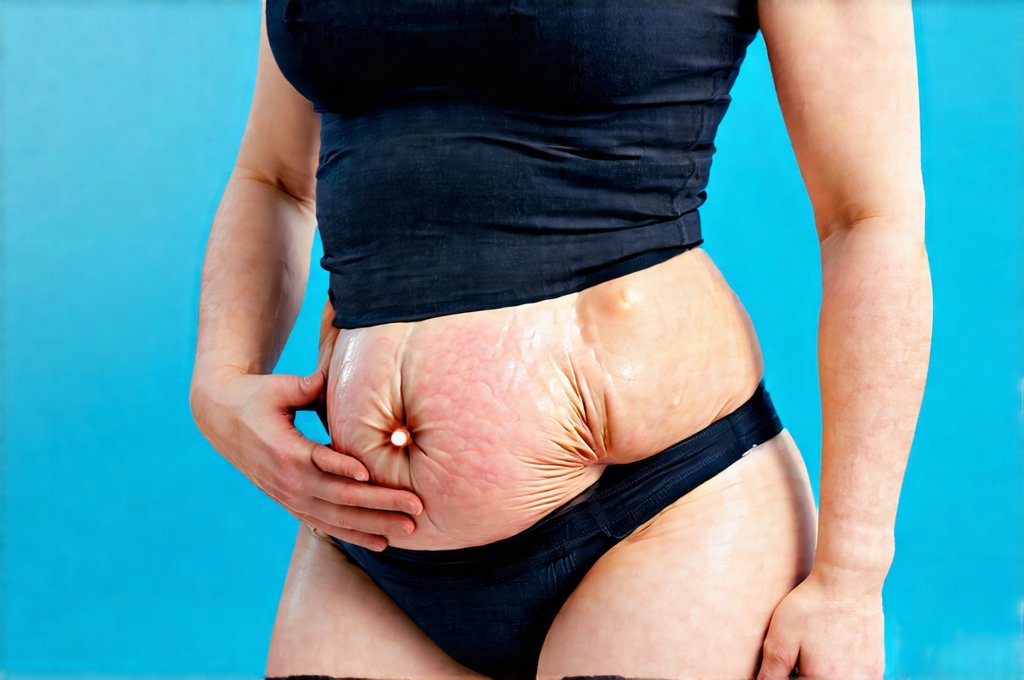Bloating is an incredibly common experience, something most people deal with at some point in their lives. It’s often dismissed as simply part of everyday life – perhaps after enjoying a particularly large meal, experiencing stress, or even due to hormonal fluctuations. While frequently harmless and temporary, bloating can sometimes signal underlying medical issues that require attention. Differentiating between typical discomfort and something more serious isn’t always easy, leading many to wonder when their bloated feeling warrants a trip to the doctor. This article will explore those crucial distinctions, offering guidance on recognizing when bloating is more than just a nuisance.
Understanding the reasons behind bloating is key to assessing its severity. The human digestive system is complex and sensitive, and factors ranging from diet choices and food intolerances to stress levels and gut microbiome imbalances can all contribute to feelings of fullness, gas, and abdominal distension. For many people, identifying triggers – like carbonated beverages, certain vegetables (beans, broccoli), or dairy products – can help manage mild bloating through dietary adjustments. However, persistent, severe, or accompanied by other concerning symptoms, bloating may indicate a more significant health problem that requires professional evaluation. It’s crucial to remember that self-diagnosis is never recommended and consulting with a healthcare provider is always the best course of action when you have concerns. If you are concerned about digestive discomfort, understanding food reaction patterns can be beneficial.
Understanding Normal Bloating vs. Concerning Symptoms
Bloating itself isn’t necessarily abnormal. In fact, it’s a natural consequence of digestion. As we eat, our bodies produce gas as food breaks down. This gas can lead to temporary bloating, particularly after meals or when consuming gas-producing foods. Normal bloating typically:
– Is relieved with passing gas or bowel movements.
– Doesn’t significantly interfere with daily activities.
– Isn’t accompanied by other concerning symptoms like severe pain, fever, or weight loss.
– Improves within a few hours to a day.
However, when bloating becomes persistent, debilitating, or is paired with additional symptoms, it shifts from being a minor inconvenience to something potentially problematic. Chronic bloating – meaning it occurs frequently over an extended period – should always be investigated by a medical professional. The key difference lies in the intensity and duration of the discomfort, as well as any accompanying warning signs that point towards underlying health issues. Ignoring persistent symptoms can delay diagnosis and treatment, potentially leading to more serious complications. Learning how to manage GERD while traveling may also help prevent bloating.
Consider this: bloating accompanied by severe abdominal pain, especially if it’s sudden and intense, is never normal and requires immediate medical attention. Similarly, bloating combined with changes in bowel habits (diarrhea or constipation), unintentional weight loss, blood in the stool, or fever suggests a problem beyond simple digestive discomfort. These symptoms could indicate conditions like inflammatory bowel disease (IBD), infections, or even certain types of cancer. It’s better to be cautious and seek medical advice than to dismiss these concerning signs as just “another bout of bloating.” If you experience persistent nausea alongside bloating, it’s important to know when to seek medical attention.
Recognizing Red Flags: Symptoms That Demand Attention
Certain combinations of symptoms with bloating are strong indicators that a doctor’s visit is necessary. These “red flags” signal that something more serious might be going on, demanding prompt evaluation and diagnosis. One critical combination is bloating coupled with significant abdominal pain. This isn’t the mild discomfort associated with gas; it’s a sharp, persistent pain that doesn’t subside easily. The location of the pain can also be telling – lower right abdominal pain could suggest appendicitis, while upper abdominal pain might indicate gallbladder issues. You should know when to seek medical attention for severe abdominal discomfort.
Another alarming sign is bloating accompanied by changes in bowel habits. This includes both persistent diarrhea and severe constipation that are different from your usual pattern. Diarrhea lasting more than a few days can lead to dehydration and electrolyte imbalances, while prolonged constipation can cause discomfort, impaction, and even intestinal blockages. Pay close attention if you notice blood in your stool – this is always a reason to consult a doctor immediately. Blood may indicate conditions like hemorrhoids, but it could also be a sign of IBD or colorectal cancer.
Finally, unintentional weight loss alongside bloating should never be ignored. Losing weight without actively trying can be a symptom of various underlying health problems, including malabsorption syndromes, infections, and certain cancers. If you experience unexplained weight loss in addition to persistent bloating, it’s essential to seek medical attention promptly for proper diagnosis and treatment. Remember that these red flags are not exhaustive, but they represent crucial indicators that warrant immediate professional evaluation.
The Role of Food Intolerances and Allergies
Food intolerances and allergies can often mimic symptoms of other serious conditions, leading to misdiagnosis or delayed treatment. While a true food allergy involves an immune system response and can be life-threatening (requiring immediate epinephrine injection), a food intolerance typically causes digestive discomfort like bloating, gas, diarrhea, or abdominal pain without triggering an allergic reaction. Lactose intolerance is a common example – individuals lacking sufficient lactase enzyme struggle to digest lactose in dairy products, resulting in bloating and other digestive issues.
Identifying food intolerances can be challenging but crucial for managing bloating. Keeping a detailed food diary—recording everything you eat and drink along with any associated symptoms—can help pinpoint potential triggers. An elimination diet, guided by a healthcare professional, may also be beneficial. This involves removing suspected foods from your diet for a period of time and then reintroducing them one at a time to observe any reactions. However, it’s important to avoid self-treating allergies or intolerances without proper medical guidance; misdiagnosis can lead to unnecessary dietary restrictions or even nutritional deficiencies. Understanding how to introduce fats without bloating is also helpful for some individuals.
It’s also essential to differentiate between food sensitivities and true allergic reactions. Allergic reactions typically involve symptoms like hives, swelling of the face or throat, difficulty breathing, or anaphylaxis—a severe, potentially life-threatening reaction. If you experience any of these symptoms after consuming a particular food, seek immediate medical attention. Food intolerances are rarely dangerous but can significantly impact quality of life, and identifying them is an important step towards managing bloating and improving digestive health. For travel plans, consider how to prevent bloating when traveling.
When to Seek Immediate Medical Attention
Knowing when bloating constitutes a medical emergency is paramount. While most cases are manageable with lifestyle changes or over-the-counter remedies, certain situations demand immediate medical intervention. Sudden, severe abdominal pain – especially if it’s accompanied by vomiting or fever – could indicate appendicitis, bowel obstruction, or other serious conditions requiring urgent surgical evaluation. Do not attempt to self-treat these symptoms; call emergency services immediately.
Another critical scenario is bloating combined with difficulty breathing or swallowing. This may suggest a severe allergic reaction (anaphylaxis) or esophageal obstruction, both of which are life-threatening emergencies. Similarly, if you experience significant abdominal distension accompanied by inability to pass gas or stool, it could indicate a bowel obstruction that requires immediate medical intervention. Delayed treatment in these cases can lead to serious complications and even death.
Finally, bloating paired with rectal bleeding is always a cause for concern and warrants prompt medical attention. While hemorrhoids can sometimes cause minor rectal bleeding, it could also be a sign of more serious conditions like IBD or colorectal cancer. Remember that this information isn’t a substitute for professional medical advice; if you are ever unsure about the severity of your symptoms, err on the side of caution and seek immediate medical attention. Your health is too important to risk. If you’re anxious about eating due to bloating, explore how to eat when you’re afraid.


















